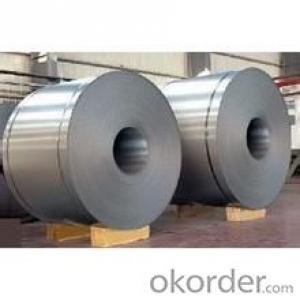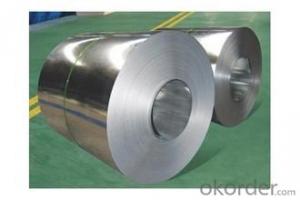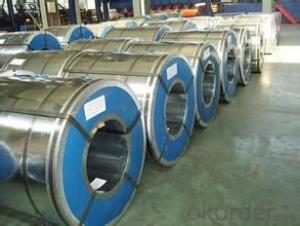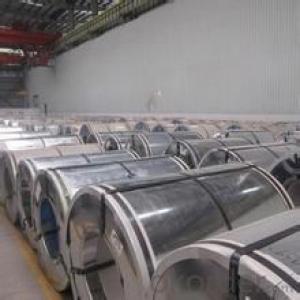good hot-dip galvanized/ auzinc CSB Steel
- Loading Port:
- Tianjin
- Payment Terms:
- TT OR LC
- Min Order Qty:
- 100 m.t.
- Supply Capability:
- 5000000 m.t./month
OKorder Service Pledge
OKorder Financial Service
You Might Also Like
Description:
Hot-dip aluzinc steel sheet is substrated on cold rolled steel (CRC) in various strength and specification. Coating composition is 55% aluminum in weight ratio, 43.4% zinc, and 1.5% silicon, with excellent corrosion and heat resistance performance.
Specification:
1.Mateials:SGCC,DX51D / DX52D /S250,280GD
2.Size:width:600-1250mm(900mm,1215mm,1250mm,1000mm the most common)
thickness:0.15-2.0mm
length:1000-6000mm,as your require
3.Zinc coating :60-180g( as required)
4.Coil id:508mm
5.Coil weight: 3-5MT(as required)
6. Surface:regular/mini/zero spangle, chromated, skin pass, dry etc.
Applications :
Galvalume Coil widely used for roofing products, It is also the ideal base material for Prepainted Steel Coil.
1. roofing
2. gutters
3. unexposed automotive parts
4. appliances
5. furniture
6. outdoor cabinetry
Images:
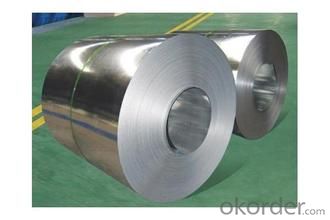
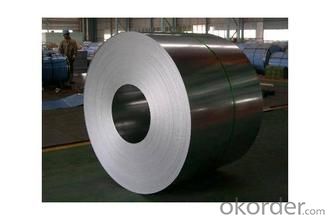
The hot-dip process is the process by which steel gets coated in layers of zinc to protect against rust. It is especially useful for countless outdoor and industrial applications.
- Q:What are the main properties of steel coils?
- Steel coils possess a multitude of characteristics that render them highly sought-after for a vast array of applications. Primarily, steel coils are renowned for their exceptional robustness and longevity. Boasting a high tensile strength, they exhibit an ability to withstand substantial loads and resist deformation. Consequently, steel coils are the optimum choice for applications that necessitate structural integrity and dependability. Moreover, steel coils exhibit remarkable resistance to corrosion. They possess an inherent capacity to generate a protective oxide layer on their surface, thereby preventing rust and other forms of corrosion. This attribute renders steel coils suitable for applications conducted outdoors or in environments characterized by high humidity or exposure to chemicals. Additionally, steel coils exhibit excellent thermal conductivity, facilitating the efficient transfer of heat. This feature renders them widely employed in heating and cooling systems, as well as in the production of various appliances and machinery. Furthermore, steel coils boast commendable formability, enabling them to be effortlessly shaped or bent into diverse configurations without compromising their strength. This quality endows them with versatility and adaptability, thereby proving indispensable in various manufacturing processes such as stamping, rolling, or welding. Lastly, steel coils are available in an extensive range of grades and thicknesses, allowing for customization based on specific application requirements. This versatility renders steel coils suitable for a vast array of industries, including automotive, construction, manufacturing, and energy. In conclusion, the main attributes of steel coils encompass strength, durability, corrosion resistance, thermal conductivity, formability, and versatility. These characteristics establish steel coils as a popular and dependable choice for a myriad of applications.
- Q:How do steel coils compare to other materials like aluminum or copper?
- Steel coils have distinct advantages over materials like aluminum or copper in certain applications. Steel is generally more affordable, readily available, and has higher tensile strength compared to aluminum or copper. It also offers better resistance to corrosion and is highly durable, making it suitable for heavy-duty applications. However, aluminum and copper have their own unique properties that make them preferable for specific uses, such as electrical conductivity or lightweight construction. Ultimately, the choice between steel coils and other materials depends on the specific requirements and intended application.
- Q:Can steel coils be used in the production of aerospace components?
- Indeed, the utilization of steel coils is feasible for the manufacturing of aerospace components. Steel, being a robust and adaptable substance, possesses an outstanding ratio of strength to weight, rendering it appropriate for a multitude of purposes in the aerospace sector. The processing and manipulation of steel coils allow for the fulfillment of precise specifications, including the creation of intricate components, structural elements, and even utilization in aerospace engines. Moreover, the corrosion resistance characteristics and capability to endure extreme temperatures make steel a dependable selection for aerospace applications.
- Q:How are steel coils used in the production of food processing equipment?
- Steel coils are used in the production of food processing equipment as they are shaped and formed into various components such as frames, supports, and panels. These coils provide strength, durability, and stability to the equipment, ensuring its reliability and longevity in the demanding food processing environment.
- Q:mass of steel ball=66.80 gramsdiameter of steel ball=2.51 cm
- To calculate the density of any object you will always use the formula: Density = Mass / Volume (P=M/V). You have recorded the known values of the mass and the diameter of the ball (sphere), so we have everything needed to calculate the Density. Mass is 66.80g, but we shall need to use another formula to calculate the volume of the sphere. The formula to use is 4/3 X Pi X radius cubed. However, first of all we need to turn your measurement of the diameter of the steel sphere into the radius of the steel sphere (So that it can be substituted in place of the “radius” in the above formula). Simply half the diameter to find the radius. So 2.51 cm divided by 2 is 1.255 cm. Now insert the radius 1.255cm into the above formula. It would be read like this: 4/3 X 3.14159… X 1.255 ?cubed (OR 4/3 X 3.14159 X 1.255X1.255X1.255), = 8.2798. So, now we know that the sphere has a volume of 8.2798 cm cubed, we can use this number in place of the “V” in the density formula P=M/V, and we can also substitute in the Mass (66.80g). So now P=66.80 / 8.2798, which = 8.07g/cm cubed. Now we know that from your measurements, steel has a density of 8.07g/cm cubed! This is fairly close to the real life average density, which if I remember correctly is around 7.8 g/cm cubed. Just remember, though, that as steel is an alloy it’s density is not standard and varies due to carbon content etc. Anyway, I hope that helped you!
- Q:What are the cost considerations when purchasing steel coils?
- When purchasing steel coils, there are several cost considerations that need to be taken into account. Firstly, the price per unit of steel coil is a significant factor. The cost of steel coils can vary depending on various factors such as the type of steel, its grade, thickness, width, and length. Higher-grade steel coils tend to be more expensive than lower-grade ones, and thicker or wider coils can also come at a higher cost. Another cost consideration is the quantity of steel coils needed. Purchasing larger quantities of steel coils often comes with volume discounts, so it is important to determine the required quantity and assess whether it is more cost-effective to buy in bulk or in smaller batches based on the demand and storage capacity. Transportation costs should also be considered when purchasing steel coils. The weight and size of the coils can impact the shipping costs, especially if they need to be transported over long distances. Additionally, the distance between the supplier and the buyer can affect freight charges, so it is crucial to evaluate different shipping options and choose the most cost-effective method. Furthermore, it is essential to take into account any additional costs associated with processing or customizing the steel coils. For instance, if the coils need to be cut, leveled, or coated, these additional services can add to the overall cost. It is important to obtain quotes from different suppliers and compare the prices for these value-added services. Lastly, it is crucial to consider the overall quality and reliability of the steel coils. While cheaper options may initially seem more cost-effective, they could end up costing more in the long run if they do not meet the required standards or have a shorter lifespan. It is advisable to choose reputable suppliers with a track record of delivering high-quality products to ensure that the investment in steel coils is worthwhile. In conclusion, the cost considerations when purchasing steel coils include the price per unit, quantity discounts, transportation costs, additional processing services, and the overall quality and reliability of the coils. Evaluating these factors thoroughly will help make an informed decision that balances cost-effectiveness with the desired quality and specifications of the steel coils.
- Q:What are they worth today? As well as a 1943 steel nickel?
- The article I am inclosing quotes the price at 50 cents, apparently the 1943 copper penny is worth thousands of dollars.
- Q:How do steel coils contribute to the energy sector?
- Steel coils contribute to the energy sector by being a crucial component in the construction and maintenance of power plants, transmission towers, and renewable energy infrastructure. These coils are used to manufacture equipment like turbines, generators, transformers, and pipelines, which are vital for the efficient generation, transmission, and distribution of electricity. Additionally, steel coils are also used in the manufacturing of energy-efficient appliances and vehicles, further promoting sustainability in the energy sector.
- Q:What are the safety precautions when working with steel coils?
- When working with steel coils, it is important to follow several safety precautions. Firstly, workers should wear appropriate personal protective equipment (PPE) such as gloves, safety glasses, and steel-toe boots to protect themselves from potential injuries. Additionally, they should ensure that the work area is well-lit and free from any trip hazards. Proper lifting techniques should be used to prevent strains or sprains, and workers should be trained on how to safely operate any machinery or equipment involved in handling the coils. Regular inspections of the coils, checking for any defects or damages, should also be conducted to avoid accidents. Lastly, workers should be aware of the potential hazards associated with working with steel coils, such as sharp edges, pinching points, and the risk of heavy objects falling, and take necessary precautions to minimize these risks.
- Q:Can steel coils be coated with QR codes?
- Yes, steel coils can be coated with QR codes. QR codes can be printed or etched onto a variety of surfaces, including steel. This allows for easy tracking, identification, and access to information about the steel coils during various stages of production, transportation, and storage.
1. Manufacturer Overview |
|
|---|---|
| Location | |
| Year Established | |
| Annual Output Value | |
| Main Markets | |
| Company Certifications | |
2. Manufacturer Certificates |
|
|---|---|
| a) Certification Name | |
| Range | |
| Reference | |
| Validity Period | |
3. Manufacturer Capability |
|
|---|---|
| a)Trade Capacity | |
| Nearest Port | |
| Export Percentage | |
| No.of Employees in Trade Department | |
| Language Spoken: | |
| b)Factory Information | |
| Factory Size: | |
| No. of Production Lines | |
| Contract Manufacturing | |
| Product Price Range | |
Send your message to us
good hot-dip galvanized/ auzinc CSB Steel
- Loading Port:
- Tianjin
- Payment Terms:
- TT OR LC
- Min Order Qty:
- 100 m.t.
- Supply Capability:
- 5000000 m.t./month
OKorder Service Pledge
OKorder Financial Service
Similar products
New products
Hot products
Related keywords
